Real Life Lex Luthors: 5 Futuristic Projects of the Mega-Wealthy
by Awl Sponsors
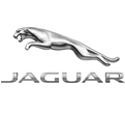
This post is brought to you by the Jaguar F-TYPE Coupe. Visit BritishVillains.com to find out why it’s #GoodToBeBad.
It’s easy to understand the allure of wealth: luxury, power, autonomy.
But for a certain species of billionaire, great wealth also entails great responsibility — the relentless ambition to reshape the world and reimagine humanity’s future. In this article, we’ll visit futuristic projects from five of the world’s most storied billionaires. And just Like Lex Luthor, Superman’s brilliant nemesis, these modern day entrepreneurs are savvy, hyper-confident, and just a little off their rockers. Let’s get to it shall we?
PETER THIEL
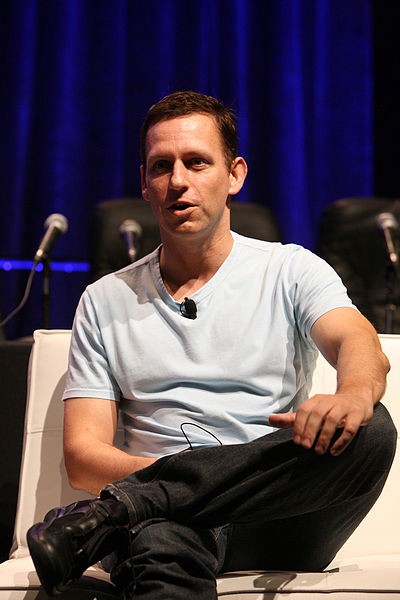
You may know Peter Thiel as the visionary tech mastermind who co-founded PayPal and invested early in a then-embryonic company called Facebook. But Thiel — who is worth upwards of $1.5 billion — has grander ambitions. As it turns out, the man who gets impromptu dinner invitations from Mike Bloomberg is also interested in breaking new ground in the frontier of science.
Thiel’s Breakout Labs invests in a company called Stealth Biosciences, a nanotechnology company. According to Stealth CEO Ari Chaney, “Thanks to the vision of Breakout Labs, we can now concentrate on building Nanostraw devices that can be used to reprogram T-cells for cancer therapy [and] produce stem cells efficiently and safely.” That’s right, we’re talking about microscopic machines that reprogram and heal cells in the body.
If that wasn’t enough, Thiel — also a libertarian — is working with other very rich people to build futuristic floating cities. Here’s the Seasteading Institute’s blurb:
That’s why we work to enable seasteading communities — floating cities — which will allow the next generation of pioneers to peacefully test new ideas for government. The most successful communities can then inspire change in governments around the world. We’re opening this new frontier because humanity needs better ways to live together to unlock our full potential.
According to Seasteading’s 85-page implementation report, the autonomous, mobile cities might look a little something like the image below.
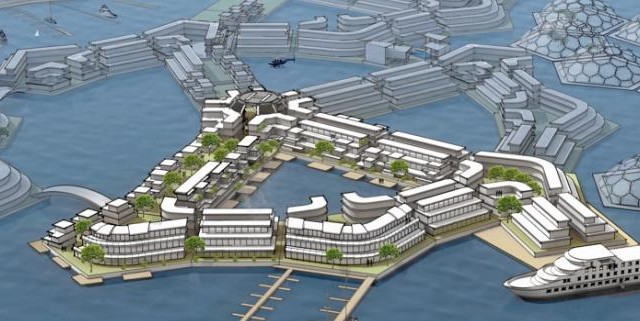
Somewhere the ghost of Ayn Rand is swooning.
ELON MUSK
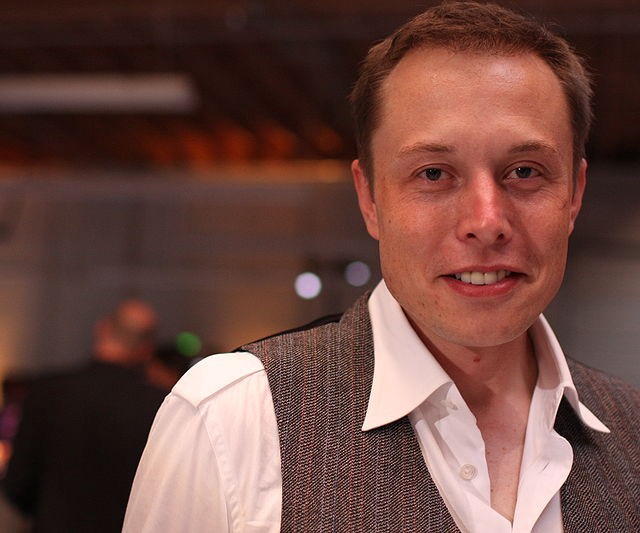
The second ultra-wealthy PayPal co-founder on our list. Elon Musk is no stranger to high stakes investing. In 2010 he gambled what was left of his $180 million PayPal fortune in order to build the Model S — a “zero emissions, zero compromises” car that runs completely on electricity.
He’s at it again with Hyperloop, a futuristic, hyper-fast transportation system that Musk describes as a “cross between a Concorde and a railgun and an air hockey table.” It’s a kind of ‘sky train’ that propels transportation pods through a tube using an ultra-thin layer of air, just like an air hockey puck. Here’s wikipedia with all of the relevant facts, which are, by the way, insane.
The conceptual route runs from the Los Angeles region to the San Francisco Bay Area, paralleling the Interstate 5 corridor for most of its length, with an expected journey time of 35 minutes, meaning that passengers would traverse the 354-mile (570 km) route at an average speed of around 598 mph (962 km/h), with a top speed of 760 mph (1,220 km/h).
That’s just under the speed of sound. A white paper is projected to be completed March 2014, and if all goes according to plan, Musk will begin working on a prototype.
The future is here. Well, almost.
LARRY PAGE AND SERGEY BRIN AND ERIC SCHMIDT
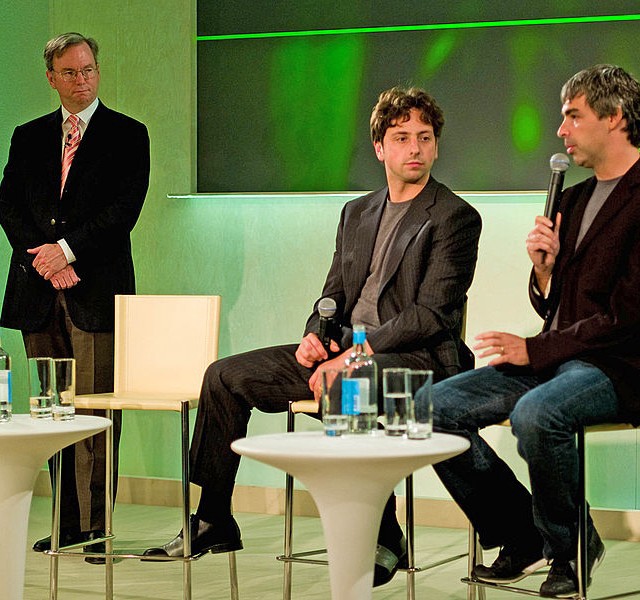
We all know Larry Page and Sergey Brin as the men who invented the internet. That’s right, Page and Brin are the cyborg duo who created Google. But they have their robot hands in more pies than just the search engine one.
In 2008 Brin invested in a company called Space Adventures, which allows individuals to reserve seats on future orbital spaceflights.
“I am a big believer in the exploration and commercial development of the space frontier, and am looking forward to the possibility of going into space,” Brin said on a Space Adventures press release announcing his involvement with the company. I’m sure everyone thought that was pretty neat at the time. But just four years later, Page — along with Google and Executive Chairman Eric Schmidt and James Cameron (!) — announced something much crazier.
They announced that, by the year 2022, robots will be engaged in space mining operations. The venture, which is called Planetary Resources, is essentially a robotics company specializing in cheap, low-cost machines that will fly in to the air, land on a planet, and begin extracting its sweet, precious contents. Everything, they say, from platinum to real estate.
Oh yeah, and eccentric Texas billionaire Ross Perot is also involved. What’s not to like?
SIR RICHARD BRANSON
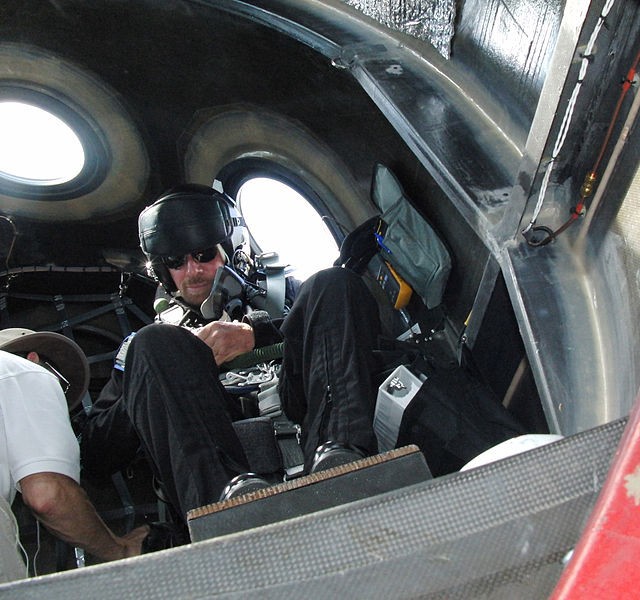
Sir Richard Branson is one of those iconic CEOs whose personal style almost eclipses his preternatural business acumen. In fact, Branson is *this* close to being a caricature of the billionaire playboy who jet sets throughout life without a care in the world. Case in point: he owns and operate his own private island, to say nothing of the string of world record attempts he has participated in since 1986 (beginning with a shipwrecked attempt at “fastest Atlantic crossing”).
From the humble beginnings of a mail-order record business Branson founded in the 70s, to the 400+ companies that now comprise Virgin Groups, Branson always did think big. And now he wants to make commercial space travel a reality for everyone.
In April of last year, Virgin Galactic’s SpaceShipTwo achieved Mach 1.22 during its first rocket powered flight, becoming the first commercial vehicle since the Concorde to break the speed of sound — a huge step toward actualizing the dream of commercial space travel. Even the OGs of space travel, NASA, are getting in on the action, having signed a deal to charter one to three flights for research missions.
JEFF BEZOS
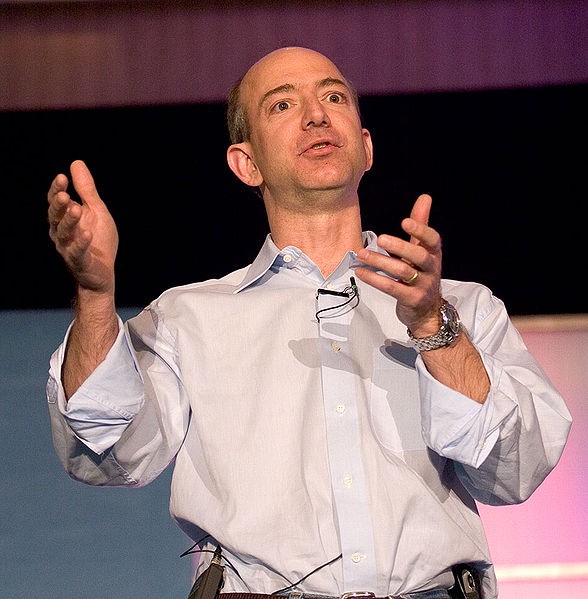
This article could have easily been titled “Libertarians in Space” and I’m still not convinced it shouldn’t be. Jeff Bezos, the powerhouse behind Amazon.com, reportedly tried to dismantle his own crib as a toddler. And it makes sense: Bezos has always been a philosophical libertarian trying to dismantle one system or another (Amazon famously exploited a tax loophole that allowed the business to avoid collecting sales tax in order to drive its prices below its competitors). But I digress!
For Bezos, planet Earth is just another crib holding humans back. And he’s betting big on the future of space travel. As high-school valedictorian, Bezos aspired to develop space hotels, amusement parks and colonies for 2 million or 3 million people orbiting the Earth. According to the Blue Origin website, Blue Origin is
“…developing technologies to enable human access to space at dramatically lower cost and increased reliability. This is a long-term effort, which we’re pursuing incrementally, step by step. We’re currently focused on developing reusable launch vehicles utilizing rocket-powered Vertical Take-off and Vertical Landing (VTVL) technology.”
Wild. Of course, Bezos isn’t just a passionate space man — he’s also a business man. “My passion is for space, for sure, but I do think this can be made into a viable business.”
